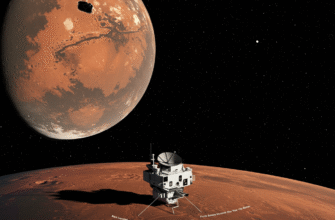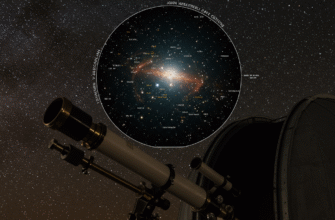It’s a curious and recurring image in the grand tapestry of world mythology: the gods, those beings of immense power and wisdom, succumbing to the allure of potent potables. Far from being mere comic relief, these episodes of celestial drunkenness often serve as critical turning points, unleashing chaos and fundamentally altering the cosmic order. The spilling of divine mead or wine frequently leads to the spilling of far more significant things – plans, secrets, and sometimes, the very stability of the heavens and earth. These are not tales of minor celestial hangovers; they are narratives where inebriation acts as a catalyst for profound, and often terrifying, cosmic disorder.
When the Gods Imbibe: A Pattern Across Pantheons
Across diverse cultures, from the frozen halls of Asgard to the sun-drenched temples of Egypt, stories abound of deities whose overindulgence has spectacular, and frequently disastrous, consequences. This isn’t merely about gods having a ‘good time’; it’s often about the inherent unpredictability they represent, or the fragility of the order they supposedly maintain. When a god drinks to excess, their inhibitions – divine or otherwise – are lowered, and their raw, untamed power can erupt in ways that reshape reality itself. The brew, be it ambrosia, soma, or heavenly ale, becomes a symbolic key unlocking primal forces.
Many ancient narratives depict intoxicating substances as having divine origins or being gifts from the gods. This connection often underscores their power to alter perception and reality. Consequently, when deities themselves consume these potent brews, the impact is magnified to a cosmic scale, influencing creation, destruction, or the very laws of nature.
These myths explore what happens when the ultimate authority figures lose control. The resulting disorder isn’t always purely negative; sometimes, it’s a chaotic re-shuffling that allows for new creation or the resolution of stagnant problems. But invariably, the universe holds its breath when the gods reach for their cups.
Norse Nogs and Heavenly Hangovers
The Norse sagas are particularly rich with tales of gods, giants, and heroes whose drinking bouts have significant repercussions. Take, for instance, the elaborate feasts hosted by the sea giant Aegir. While Aegir himself was often a genial host, the gatherings were frequently powder kegs. Loki, the trickster god, famously used one such feast to hurl insults and accusations at the assembled Aesir and Vanir gods in the poem Lokasenna, shattering the conviviality and exposing deep-seated tensions. His drunken, venomous tirade was a prelude to further strife, contributing to the atmosphere that would eventually lead to Ragnarök, the twilight of the gods.
Thor, the thunder god, known for his immense strength and equally immense appetite, also features in stories where his consumption, particularly of ale, plays a role. In one famous tale, during a visit to the giant Útgarða-Loki, Thor is challenged to a drinking contest. He attempts to drain a massive horn, unaware that it is magically connected to the sea. Though he fails to empty it, his prodigious gulps visibly lower the ocean’s level, creating tides – a direct, physical alteration of the world born from a divinely drunken effort. While played for some humor, the underlying message is clear: even a god’s ‘failed’ attempt at revelry can have earth-shattering (or sea-lowering) consequences. The sheer power, even when misdirected by intoxication, is undeniable.
Dionysian Delirium: Wine, Ecstasy, and Unraveling Order
Perhaps no deity is more famously associated with intoxicating beverages and the ensuing chaos than the Greek god Dionysus (or Bacchus to the Romans). As the god of wine, ecstasy, and ritual madness, his very essence is tied to the transformative and order-disrupting power of inebriation. The Dionysian rites themselves, the Bacchanalia, were infamous for their wild, frenzied nature, where societal norms were cast aside in a state of collective, wine-fueled abandon. This wasn’t just a party; it was a temporary dissolution of the established social and cosmic order, a return to a more primal state.
Myths surrounding Dionysus often depict this chaotic influence. His followers, the Maenads, driven mad by divine influence (and often wine), would roam the hillsides in ecstatic frenzies, capable of tearing wild animals – and sometimes humans, like King Pentheus of Thebes – limb from limb. Pentheus’s tragic fate, dismembered by his own mother Agave in a Bacchic trance, serves as a stark warning about the dangers of resisting or misunderstanding the god’s power, a power intrinsically linked to the loss of rational control that wine can induce. The introduction of wine, a gift from Dionysus, is often a double-edged sword in myths: a source of joy and conviviality, but also a potent catalyst for mayhem when not respected. Even the gods themselves were not immune to the wine-fueled disputes, as seen in the legend of the Centauromachy, the battle between the Lapiths and Centaurs, which famously erupted at a wedding feast when the Centaurs, unaccustomed to wine, became violently drunk and attempted to abduct the Lapith women. This brawl, involving heroes and divine lineage, became a classic symbol of the struggle between civilization and barbarism, often sparked by uncontrolled indulgence.
Egyptian Ales and Appeased Furies
In ancient Egyptian mythology, a particularly dramatic instance of celestial drunkenness averting cosmic disaster involves the goddess Sekhmet. A fearsome warrior goddess with the head of a lioness, Sekhmet was an instrument of Ra’s vengeance, sent to punish humanity for plotting against him. She embarked on a bloody rampage, slaughtering mortals with such ferocity that she threatened to wipe out all of humankind. The other gods became alarmed, realizing that if Sekhmet continued, there would be no one left to worship them.
These myths, while entertaining, often served didactic purposes, warning against excess or illustrating the capricious nature of divine power. Interpreting them solely as justifications for revelry misses their deeper cultural and moral implications. The line between divine ecstasy and destructive chaos is often perilously thin.
Ra, regretting his command, devised a plan. He ordered vast quantities of beer to be brewed and dyed red with ochre or pomegranate juice to resemble blood. This potent, blood-colored beer was then poured out over the fields where Sekhmet was expected to continue her massacre. Mistaking the beer for blood, the insatiably thirsty goddess drank deeply. She became so intoxicated that she fell into a deep slumber, her murderous rage forgotten. Upon awakening, her fury was appeased, and she transformed into the gentler goddess Hathor, a deity of love, joy, and music. Here, divine drunkenness doesn’t cause disorder but rather curtails it, a unique twist where intoxication becomes the unlikely savior of humanity and restores a form of cosmic balance by pacifying an otherwise uncontrollable destructive force. This tale highlights the transformative power of intoxicating substances, capable of turning divine wrath into benevolent calm.
Otherworldly Brews: Echoes in Global Folklore
The theme of divine intoxication leading to significant, often disruptive, events is not confined to these major pantheons. In Hindu mythology, the intoxicating drink Soma is a central element in Vedic rituals, granting gods like Indra immense power and sometimes leading to boisterous, world-shaking behavior. Indra, fueled by Soma, battles cosmic serpents like Vritra, an act essential for releasing the waters and ensuring life, but his energized state often borders on the chaotic.
Further east, in Chinese mythology, the famous Monkey King, Sun Wukong, causes monumental chaos in Heaven after getting drunk. He crashes a divine peach banquet to which he wasn’t invited, consumes Lao Tzu’s pills of immortality, and generally throws the celestial bureaucracy into disarray. His drunken rampage is a pivotal moment, showcasing his defiance and power, and leading directly to his subsequent punishment and eventual role in the Journey to the West. His actions, fueled by celestial wine and an immortal’s ego, ripple through the cosmic order, demonstrating how one inebriated immortal can challenge the entire heavenly structure. The audacity of his drunken acts sets in motion a grand narrative of redemption and enlightenment.
The Symbolic Weight of Celestial Sips
Why does this motif of divine drunkenness and subsequent cosmic disorder resonate so strongly across cultures? Firstly, it humanizes the gods. By showing them succumbing to a very human vice, these stories make deities more relatable, less abstractly perfect. Their fallibility, even if temporary and comically exaggerated, makes them characters in a drama rather than just distant forces.
Secondly, intoxication often symbolizes a stripping away of veneers, a revelation of true, perhaps more primal, nature. When a god is drunk, their divine composure might crack, revealing raw power, hidden grievances, or unpredictable whims. This can represent the untamed, chaotic forces that always lurk beneath the surface of an ordered cosmos. The world, these myths suggest, is not always governed by staid rationality, even at the highest levels.
Furthermore, the disorder caused by celestial inebriation can be a necessary precursor to a new order. Just as a forest fire can clear the way for new growth, a divine drunken spree might shatter old structures, resolve conflicts (albeit messily), or even accidentally create new features of the world, like Thor’s creation of tides. It’s a form of creative destruction, where the temporary loss of control leads to unforeseen, sometimes beneficial, outcomes. The intoxication breaks divine stasis, forcing change and movement in the cosmic narrative. It’s a reminder that even in the divine realm, flux and unpredictability are inherent to existence.
Ultimately, the tales of tipsy gods and the ensuing cosmic disarray reflect a profound understanding of the delicate balance between order and chaos. They explore the idea that the forces governing the universe are not always sober, rational, or predictable. These narratives offer a space to contemplate the wild, untamed aspects of existence, often with a touch of humor, but always with an underlying sense of the immense power – and potential for pandemonium – that lies within the divine, and by extension, within the cosmos itself. The celestial hangover, in these myths, is often felt by the entire world.








